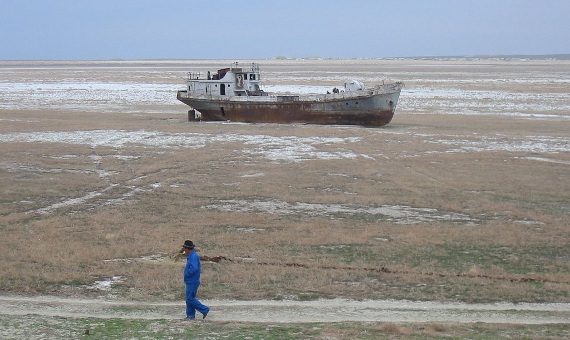Proposed as the fifth crime against the peace and security of mankind when the International Criminal Court was to be established in The Hague in 1998, opposition from the United States, the United Kingdom and the Netherlands led to ecocide being removed from the list of crimes judged by this court: crimes against humanity, genocide, war crimes and crimes of aggression against states or territories. Despite this, initiatives such as Ecocide Project continue to fight today for massive damage to ecosystems to be considered a crime of this gravity. At a time when the disappearance of the Amazon continues unabated, already reaching the critical point of 20% of its surface, and more than five million hectares of Australia have been burned in recent months due to unusual heat waves caused by climate change, these initiatives have never been so important.
The concept of ecocide began to emerge in the final years of the Vietnam War (1955-1975), when the scars of that war were more than evident and were having a devastating effect on the territory. Attacks with Agent Orange—a powerful herbicide used as a chemical weapon by the US army—killed hundreds of thousands of people and left millions of hectares of land barren. The first time the world heard the word ecocide was at the 1972 UN Environmental Summit in Stockholm, where Olof Palme, the Swedish Prime Minister, accused the United States of ecocide for its practices in Vietnam. Representatives of other countries present, such as Indira Gandhi of India and Tang Ke of China, suggested at the time that the destruction of the ecosystem should be considered a crime against humanity.

Five years later, in 1977, the United Nations adopted the Convention on the Prohibition of Military or Any Other Hostile Use of Environmental Modification Techniques, to prevent events like the one in Vietnam from happening again. However, since then, the human population has multiplied and diversified its footprint on the planet in times of peace, leaving cruel scars: huge islands of plastic in the oceans, deforestation of tropical forests, oilfield spills, exploitation of wild habitats… events that constantly destroy ecosystems, and in most cases go unpunished. A universal prosecution of these types of events would mean that even if a country had very tolerant environmental legislation, crimes committed in its territory could be prosecuted at the international level.
Interactive Map: 10 Big crimes against Nature
[+] Watch Fullscreen
A lawyer for the Earth
In the fight for the recognition of crimes against nature, Scottish lawyer Polly Higgins played a crucial role by leading a global campaign with the aim of having a legal tool to denounce practices that put the environment at risk. Higgins left her work to legally defend the planet, in search of the classification of ecocide as a crime, which would criminalize the destruction of the ecosystem caused by the action of states and multinationals, imposing the legal duty of care. She explained the turn she took in her life: “In 2005 I was a barrister representing a man who had suffered a serious workplace injury. There was a moment of silence while we were waiting for the judges, and I looked out the window and thought: ‘The Earth has been badly injured and harmed too, and something needs to be done about that.’ My next thought actually changed my life: ‘The Earth needs a good lawyer, too.”

Although Polly Higgins (July 4, 1968 – April 21, 2019) died in her fifties without achieving her goal, her work and effort have kept the controversy alive and more and more voices are joining the discussion. One of the latest has been that of Pope Francis, who has publicly supported the longstanding demand that ecocide be considered the fifth crime against peace in his speech at the 20th International Congress of the Criminal Law Association, held at the Vatican in 2019. Jorge Mario Bergoglio even went further, proposing that “sins against ecology” be added to the catechism.
Towards a global pact
While the debate continues, a dozen countries—Georgia, Armenia, Ukraine, Belarus, Ecuador, Kazakhstan, Kyrgyzstan, Moldova, Russia, Tajikistan, Uzbekistan and Vietnam— have indeed classified ecocide as a crime within their borders. Some, such as Georgia and Armenia, have imposed prison sentences of up to fifteen years. The international community has also taken some steps. In 2018, the United Nations General Assembly adopted the resolution entitled Towards a Global Pact for the Environment, which seeks to lay the foundations for an International Environmental Law. Ecocide Project from the University of London is also fighting for this. This project organizes conferences, courses, seminars and other activities to promote the development of international environmental law.

The first global assessment of the state of environmental law published by the UN Environment Programme in 2019 is not very positive. One of its reports highlights that most of the environmental agreements reached in the last fifty years are not being enforced. They blame this on poor coordination between government agencies, lack of access to information, corruption and poor citizen participation. Thus, deterring ecocides such as the pollution of the Niger Delta, the drought of the Paraguayan Chaco or the deforestation of Borneo and Sumatra is in everyone’s hands. In spite of the complex legal situation, the development of international legislation that sanctions crimes against the environment is getting closer.
Comments on this publication